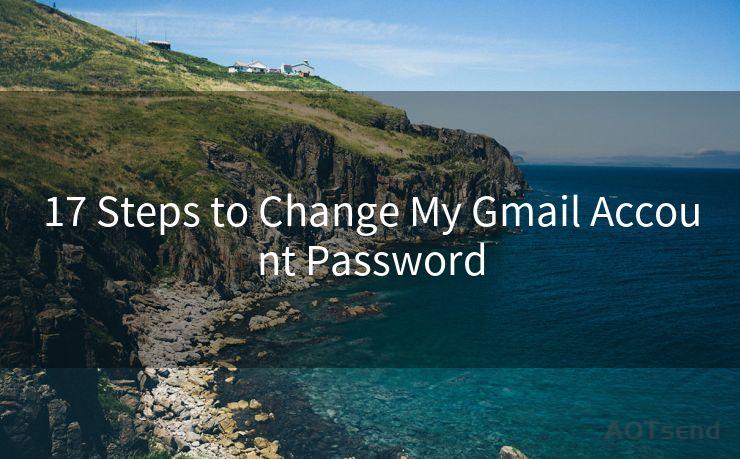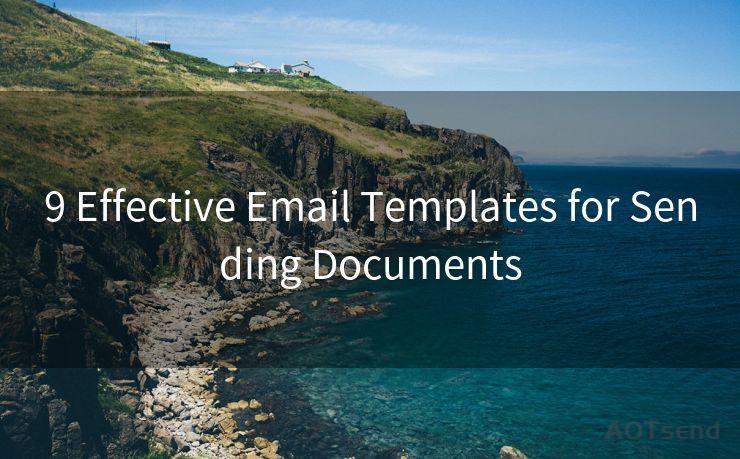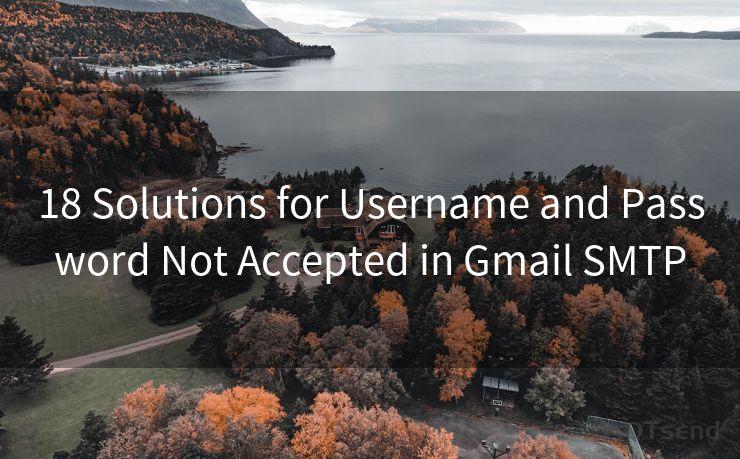14 Best Practices for Modern Authentication IMAP
Hello everyone, I’m Kent, the website admin. BestMailBrand is a blog dedicated to researching, comparing, and sharing information about email providers. Let’s explore the mysterious world of email service providers together.




In the digital age, secure and efficient authentication methods are crucial for protecting sensitive information and ensuring a smooth user experience. IMAP (Internet Message Access Protocol) is widely used for email retrieval, and when combined with modern authentication practices, it can provide a robust and secure platform for email communication. Here are 14 best practices for modern authentication with IMAP that can help enhance security and usability.
1. Enable Two-Factor Authentication
Two-factor authentication adds an extra layer of security to IMAP accounts. By combining something the user knows (like a password) with something they have (like a smartphone for receiving verification codes), this method significantly reduces the risk of unauthorized access.
2. Utilize OAuth 2.0 for Secure Access
OAuth 2.0 is an authorization framework that allows third-party applications to obtain limited access to user accounts without exposing the user's password. Implementing OAuth 2.0 for IMAP authentication ensures that only authorized applications can access email data.
3. Enforce Strong Password Policies
Require users to create complex passwords that are difficult to guess or crack. Regularly prompt users to update their passwords and avoid common pitfalls like using personal information or simple patterns.
4. Implement SSL/TLS Encryption
Ensure that all IMAP communications are encrypted using SSL/TLS protocols. This prevents eavesdropping and protects the confidentiality and integrity of data in transit.

5. Regularly Update and Patch Systems
Keep IMAP servers and clients up to date with the latest security patches and updates. This helps protect against known vulnerabilities and exploits.
6. Restrict Access to Sensitive Operations
Limit access to sensitive IMAP operations, such as deleting or moving emails, to authorized users or applications. This reduces the risk of accidental or malicious data loss.
7. Monitor and Log All Activities
Maintain detailed logs of all IMAP activities, including login attempts, successful and failed authentications, and unusual behaviors. This aids in detecting and responding to security incidents.
8. Implement Rate Limiting and Throttling
Set limits on the number of authentication attempts from a single source in a short period. This helps mitigate brute-force attacks and other automated login attempts.
9. Use Secure Protocols for Email Submission
When submitting emails via IMAP, ensure that secure protocols like SMTPS (SMTP over SSL) or SMTP with STARTTLS are used to encrypt the email content and protect against eavesdropping.
10. Educate Users on Secure Practices
Provide regular training and education to users on secure email practices, including recognizing phishing attempts, handling sensitive information, and using strong passwords.
11. Implement Multi-Factor Authentication for Privileged Accounts
For accounts with elevated privileges, such as administrators or moderators, consider implementing multi-factor authentication to further enhance security.
12. Regularly Audit and Review Access Controls
Periodically review and audit IMAP access controls to ensure that only authorized users and applications have access to sensitive data and operations.
13. Leverage AI and Machine Learning for Anomaly Detection
Utilize advanced technologies like artificial intelligence and machine learning to detect unusual patterns or suspicious activities related to IMAP authentication.
14. Prepare for Emergencies with a Robust Disaster Recovery Plan
Have a comprehensive disaster recovery plan in place to ensure business continuity in case of any unexpected events that may affect IMAP services or data integrity.
By following these best practices for modern authentication with IMAP, organizations can significantly enhance the security and reliability of their email communications. Implementing these measures helps protect sensitive information, prevent unauthorized access, and ensure a smooth and secure user experience.
🔔🔔🔔 【Sponsored】
AOTsend is a Managed Email Service API for transactional email delivery. 99% Delivery, 98% Inbox Rate.
Start for Free. Get Your Free Quotas. Pay As You Go. $0.28 per 1000 Emails.
You might be interested in:
Why did we start the AOTsend project, Brand Story?
What is a Managed Email API, How it Works?
Best 24+ Email Marketing Service (Price, Pros&Cons Comparison)
Best 25+ Email Marketing Platforms (Authority,Keywords&Traffic Comparison)




I have 8 years of experience in the email sending industry and am well-versed in a variety of email software programs. Thank you for reading my website. Please feel free to contact me for any business inquiries.
Scan the QR code to access on your mobile device.
Copyright notice: This article is published by AotSend. Reproduction requires attribution.
Article Link:https://www.bestmailbrand.com/post3807.html











